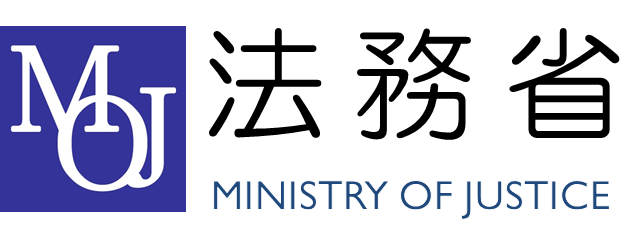– Japan’s “HOGOSHI” to the World –The World Congress for Community Volunteers Supporting Offender Reintegration
Before the World Congress for Community Volunteers Supporting Offender Reintegration (the “World Congress”) , the Asia Volunteer Probation Officers Meetings were held in 2014 and 2017, attended by volunteer probation officers from Japan, Korea, the Philippines, Singapore, Thailand, as well as observers from China and Kenya. Participants shared practices and challenges of their countries’ volunteer probation officer programmes and offender rehabilitation system. At the Meeting 2014, "Tokyo Declaration" was adopted, which called for the establishment of a global network of volunteer probation officers and their continued mutual cooperation.
Concept
Community support and partnerships involving the public and private sectors and civil society are critical to the prevention of reoffending and promotion of offender reintegration. Notably, the importance of community volunteers providing support of offenders, particularly by means of regular dialogues and provision of advice as peer members of the community, is increasingly recognized.
The hogoshi (volunteer probation officer in Japan) system and other community volunteer systems have been adopted and developed throughout the world. This World Congress, based on the outcome of the previous Asia Volunteer Probation Officers Meetings 2014 and 2017, offers a tremendous opportunity to discuss the significance of participation of community volunteers in reducing reoffending, as well as measures to foster these community volunteer systems throughout the world.
The outcome of the World Congress is expected to contribute to the establishment of United Nations standards and norms on reducing reoffending as well as the promotion of community volunteer system such as hogoshi system in various countries, so that the circle of "HOGOSHI" will expand throughout the world.
Overview and programme
Date: Sunday 7 March 2021
Time: 14:30 - 18:00
Location: Kyoto International Conference Centre
Organizers: Rehabilitation Bureau, Ministry of Justice, Japan
United Nations Asia and Far East Institute for the Prevention of Crime and the Treatment of Offenders (UNAFEI)
Participants: Criminal justice practitioners, academics and UN officials from around the world, Japanese hogoshi, etc.
Programme:
<Part 1>
Welcome Remarks: Ms. Kamikawa Yoko (Minister of Justice, Japan)
Opening Remarks: Ms.Ghada Waly (Executive Director, UNODC)
Opening video message: Mr.Tanigaki Sadakazu (President of the National Federation of Volunteer Probation Officers, Japan)
Guest Speech: Dr. Nathee Chitsawang (Deputy Executive Director, Thailand Institute of Justice)
Keynote Speech: Dr. Frank J. Porporino (Former President, International Association for Correctional & Forensic Psychology)
Introductive presentation on the proposal of a draft World Congress statement, “Kyoto Declaration on Community Volunteers Supporting Offender Reintegration” (Kyoto Hogoshi Declaration): Mr. Imafuku Shoji (Director General of the Rehabilitation Bureau, Ministry of Justice, Japan)
<Part 2>
Panel Discussion
Adoption of the Kyoto Hogoshi Declaration
Closing Remarks: Ms. Valérie Lebaux (Chief, Justice Section, UNODC)
Welcome Remarks: Ms. Kamikawa Yoko (Minister of Justice, Japan)
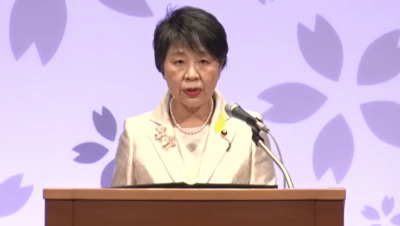
Welcome remarks by Ms. Kamikawa (Minister of Justice, Japan)
(Please click here for the whole text of welcome remarks)
Opening Remarks: Ms. Ghada Waly (UNODC Executive Director))
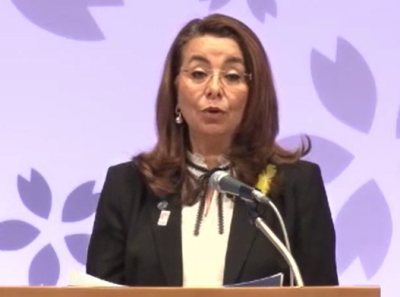
Opening remarks by Ms. Waly
(Please click here for the whole text of opening remarks)
Opening video message: Mr. Tanigaki Sadakazu (President of the National Federation of Volunteer Probation Officers)
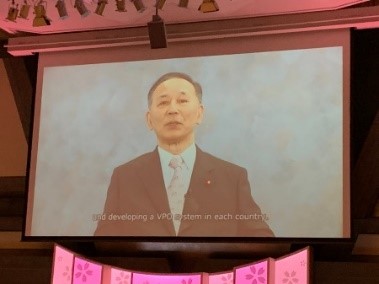
Opening video message by Mr. Tanigaki (President of the National Federation of Volunteer Probation Officers)
(Please click here for the whole text of the video message)
Guest Speech: Dr. Nathee Chitsawang (Deputy Executive Director, Thailand Institute of Justice)
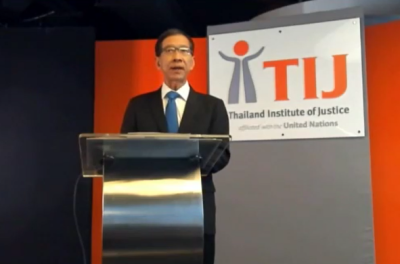
Guest speech by Dr. Chitsawang (Deputy Executive Director of the Thailand Institute of Justice)
Keynote Speech: Dr. Frank J. Porporino (Former President, International Association for Correctional & Forensic Psychology)
(Please click here for materials of the keynote speech)
Introductive presentation on the proposal of a draft World Congress statement, “Kyoto Declaration on Community Volunteers Supporting Offender Reintegration” (Kyoto Hogoshi Declaration): Mr. Imafuku Shoji (Director General of the Rehabilitation Bureau, Ministry of Justice, Japan)
Subsequently, he explained the concept and purpose of “Kyoto Declaration on Community Volunteers Supporting Offender Reintegration (Kyoto Hogoshi Declaration)”, and emphasized that the significance of participation of community volunteers. At the end of presentation, he proposed the adoption of the Kyoto Hogoshi Declaration. (At the end of the World Congress, the Kyoto Hogoshi Declaration was adopted. Details are described below).
(Please click here for slides and script of the presentation)
Panel Discussion
A panellist from Japan, Ms. Ando Ryoko, a hogoshi and the President of Tochigi Prefectural Volunteer Probation Officers Association introduced, based on her experience, her consideration in building relationships with probationers and parolees. She emphasized the importance of public understanding and the cooperation of local community, which forms the basis for the activities of hogoshi, and introduced activities to promote public understanding and cooperation.
(Please click here for panellists’ brief biography.)
(Please click for participating country's presentations : Thailand,Philippines,Japan,Canada,UK.)
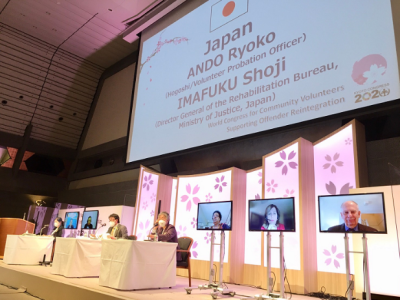
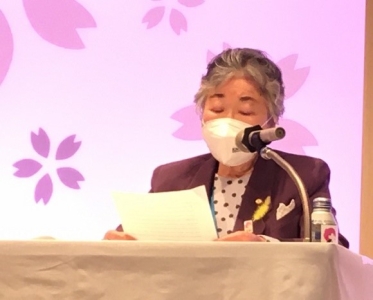
Panel discussion Ms. Ando (One of the panellists)
President of Tochigi Prefectural
Volunteer Probation Officers Association
Adoption of Kyoto Hogoshi Declaration
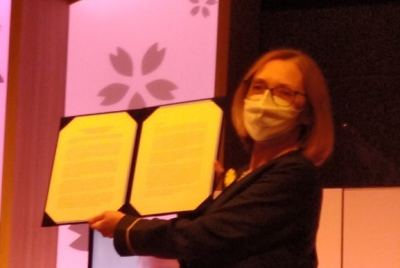
Ms. Lebaux (Chief of Justice Section, UNODC) showed the Kyoto Hogoshi Declaration
(Please click here for the whole text of the Kyoto Hogoshi Declaration.)
Closing Remarks: Ms. Valérie Lebaux (Chief, Justice Section, UNODC)
(Please click here for the whole text of closing remarks.)
Future Initiatives
PDF形式のファイルをご覧いただく場合には、Adobe Readerが必要です。
Adobe Readerをお持ちでない方は、バナーのリンク先から無料ダウンロードしてください。
リンク先のサイトはAdobe Systems社が運営しています。
※上記プラグインダウンロードのリンク先は2011年1月時点のものです。
